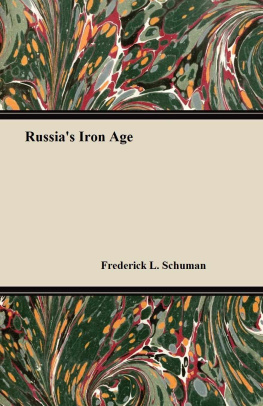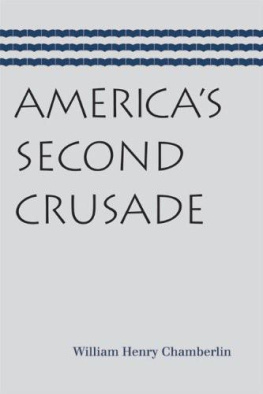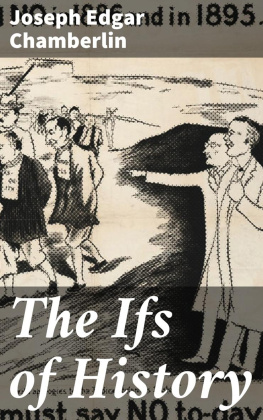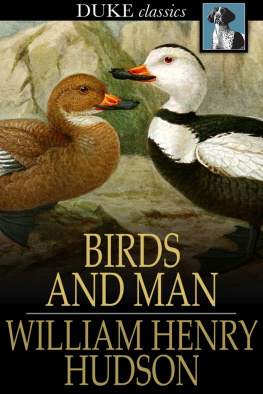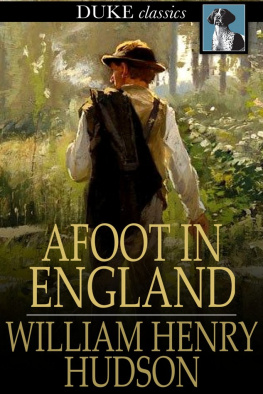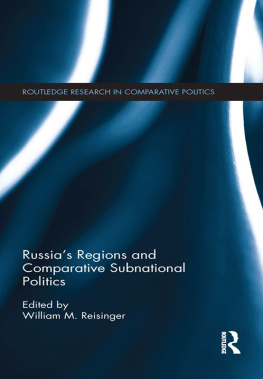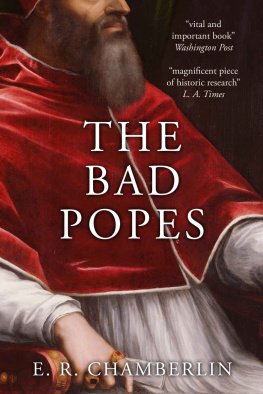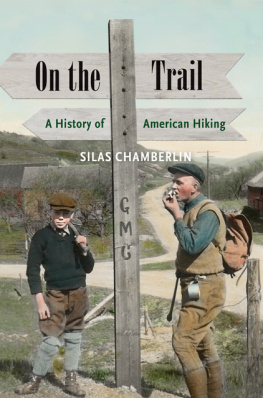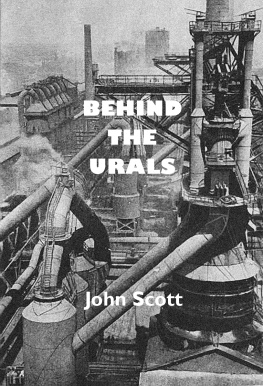William Henry Chamberlin - Russias Iron Age
Here you can read online William Henry Chamberlin - Russias Iron Age full text of the book (entire story) in english for free. Download pdf and epub, get meaning, cover and reviews about this ebook. year: 2013, publisher: Read Books Ltd., genre: Politics. Description of the work, (preface) as well as reviews are available. Best literature library LitArk.com created for fans of good reading and offers a wide selection of genres:
Romance novel
Science fiction
Adventure
Detective
Science
History
Home and family
Prose
Art
Politics
Computer
Non-fiction
Religion
Business
Children
Humor
Choose a favorite category and find really read worthwhile books. Enjoy immersion in the world of imagination, feel the emotions of the characters or learn something new for yourself, make an fascinating discovery.
- Book:Russias Iron Age
- Author:
- Publisher:Read Books Ltd.
- Genre:
- Year:2013
- Rating:4 / 5
- Favourites:Add to favourites
- Your mark:
- 80
- 1
- 2
- 3
- 4
- 5
Russias Iron Age: summary, description and annotation
We offer to read an annotation, description, summary or preface (depends on what the author of the book "Russias Iron Age" wrote himself). If you haven't found the necessary information about the book — write in the comments, we will try to find it.
Russias Iron Age — read online for free the complete book (whole text) full work
Below is the text of the book, divided by pages. System saving the place of the last page read, allows you to conveniently read the book "Russias Iron Age" online for free, without having to search again every time where you left off. Put a bookmark, and you can go to the page where you finished reading at any time.
Font size:
Interval:
Bookmark:
RUSSIA
SINCE
1917
Frederick L. Schuman
WOODROW WILSON PROFESSOR OF GOVERNMENT, WILLIAMS COLLEGE
RUSSIA
SINCE
1917
Four Decades of Soviet Politics
MAPS BY GEORGE D. BRODSKY

To the memory of my parents
Preface
WHEN GEN. NATHAN F. TWINING, Chief of Staff of the USAF, returned from the Soviet Union on July 4, 1956, he was quoted as saying: Nobody is an expert on Russia. There are just varying degrees of ignorance. A similar comment was made by British journalist Paul Winterton during World War II, when the course and outcome of the savage combat across the steppes confounded most Western experts.
If wisdom regarding Russia were proportionate to the staggering number of books, monographs, and articles on Soviet affairs published since 1917 in English, French, and German, all literate citizens and statesmen throughout the Atlantic communities would be wise indeed. All seekers after truth are deeply indebted to these many laborers in the vineyards of Russian studies. Without their toil no such task as is here attempted could be contemplated.
Yet darkness and fear have not been dispelled by these millions of printed pages. Few are available to the peoples of the USSR. Even the Lenin State Library in Moscow, claiming to house the largest collection of books in the world, contains almost no works in any language by writers who are hostile toward, or critical of, or objective about, the Soviet way of life. The gigantic output of the Soviet publishing business, catering to a domestic market which is insatiable, is far more readily available to Western scholars, particularly to readers of Russianwith much accessible in translation for those to whom the Cyrillic alphabet, the Slavic root-words, and the two aspects of the verb are impenetrable mysteries. This literature, however, answers only a few of the questions about Russia in which Western peoples are most interested. When reality is projected through the lenses of dogma, truth is seen only through a glass darkly. Many Western efforts to explain Russia display similar distortions, with more heat than light generated in the processes of refraction and reflection.
The sheer volume of publications about Russia obliges anyone who adds to the mass to try, as best he can, to justify his conduct. What new truths are here revealed? What claims, if any, to expertise can the perpetrator of these pages plausibly put forward? Such queries are better answered by readers and by critics than by authors. One mans view of the problem may yet be worth setting down.
From time to time, it seems to me, some semblance of insight into the Marxist Muscovy of the 20th Century can best be attained by trying to see beyond specialized studies of particular aspects of Soviet experience and to transcend the polemics of Marxism, Leninism, and Stalinismand of anti-Marxism, anti-Leninism, and anti-Stalinism. The rarefied atmosphere at the summit of an intellectual Mount Kazbek may, to be sure, induce dizziness rather than clarity of vision. But if the searcher in Sovietland will keep his eyes on people as well as on programs, on the imposing spatial dimensions of his subject along with the color of localities, and on the equally imposing temporal dimensions of a society which has endured through many vicissitudes for more than a thousand years, he may be able to arrive at a synoptic view, at a new synthesis, and at an illuminating reinterpretation of this incomparably dramatic and dynamic chapter of the human adventure.
Such, at any rate, is the purpose of this book, as it was of my earlier book, Soviet Politics at Home and Abroad, published by Alfred A. Knopf in 1946 and by Iwanami Shoten of Tokyo in a Japanese translation in 1956. The close of World War II appeared to me, a decade ago, an appropriate time for such a venture. The fortieth anniversary of the Revolutions of 1917 strikes me as another suitable occasion for a fresh attempt at synthesis and revaluation in the light of recent documentation and the contemporary Soviet scene. Whether the purpose has been fulfilled is for others to say.
I have here sought to present, insofar as this can be done in a single volume, the whole story through forty years of what some Westerners once called the Soviet experiment and others the horrors of Bolshevism. Lincoln Steffens, returning from Moscow in March of 1919, exclaimed ecstatically: I have seen the future and it works! Never was anyone so wrong in so few words about so much. Moscow in 1919 was not the future, nor is Moscow in 1957 in any sense the future even for the third of mankind under Communist rule. The Soviet polity, economy, and society of 1919 did not work at all but spelled chaos. Today they work very well, though in ways never foreseen by the Marxist conspirators of a generation ago. Like most other acts on the stage of mans endless quest for salvation, the drama of Russia since 1917 is a tangled tale of tragedy and triumph, of frustration and success, of hopes realized and of dreams turned to dust. Here, more vividly than elsewhere in our time, sin and virtue, crime and retribution, inspiring achievements and ghastly disasters alternate in the course of human fortunes. The whole is a black paradox, a bright vision, and a baffling enigma which it behooves Americans, along with other peoples, to try to comprehend, lest they blindly repeat the mistakes of the past in a new time when the price of ignorance and error may be the thermonuclear coannihilation of most of the human race.
In these pages I have, I trust, made no pretense of supplying all the right answers. The liberal-democratic formula for wisdom in public affairs presupposes that no one has the right answers but that all, if informed, may ask the right questions in a free market for talkand that out of discussion, observation, decision-making, and the pragmatic testing of hypotheses truth may emerge in the form of operationally workable means toward social goals subscribed to by most men and women of good will. The Marxist formula, like that of other dogmatists, presupposes that truth and wisdom can be derived from sacred scriptures as interpreted, intolerantly, by high priests. Happily the Marxists of Muscovy are lately displaying an increasing disposition to test their truths by consequences and to accept the biblical injunction: By their fruits ye shall know them! My hope is that these pages pose some of the right questions; that they will contribute modestly to comprehension of Russias travails and accomplishments; and that they will prove useful as a detailed and documented record of the words and deeds of the rulers of Russia since the October Revolution in their responses to the challenges posed both by internal problems and by the external environment of world politics in an age of world wars, cold wars, and incessant rivalry among Powers and priesthoods for influence over the minds of men.
The narrative and analysis here presented include some scattered passages from my earlier book on Soviet Politics. The perceptive reader will see that many judgments on many matters offered a decade ago have been much modified in view of new factsprecisely as many of the evaluations here set forth may well be in need of alteration a decade hence. These pages also include a few passages from my annual articles on the USSR in Funk and Wagnalls New International Year Book. I am most grateful to Editor Henry E. Vizetelly for permission to reprint these passagesand for the opportunity he has granted me over the past dozen years to attempt an annual survey of Soviet developments, without which this book could not have been written.
Next pageFont size:
Interval:
Bookmark:
Similar books «Russias Iron Age»
Look at similar books to Russias Iron Age. We have selected literature similar in name and meaning in the hope of providing readers with more options to find new, interesting, not yet read works.
Discussion, reviews of the book Russias Iron Age and just readers' own opinions. Leave your comments, write what you think about the work, its meaning or the main characters. Specify what exactly you liked and what you didn't like, and why you think so.

